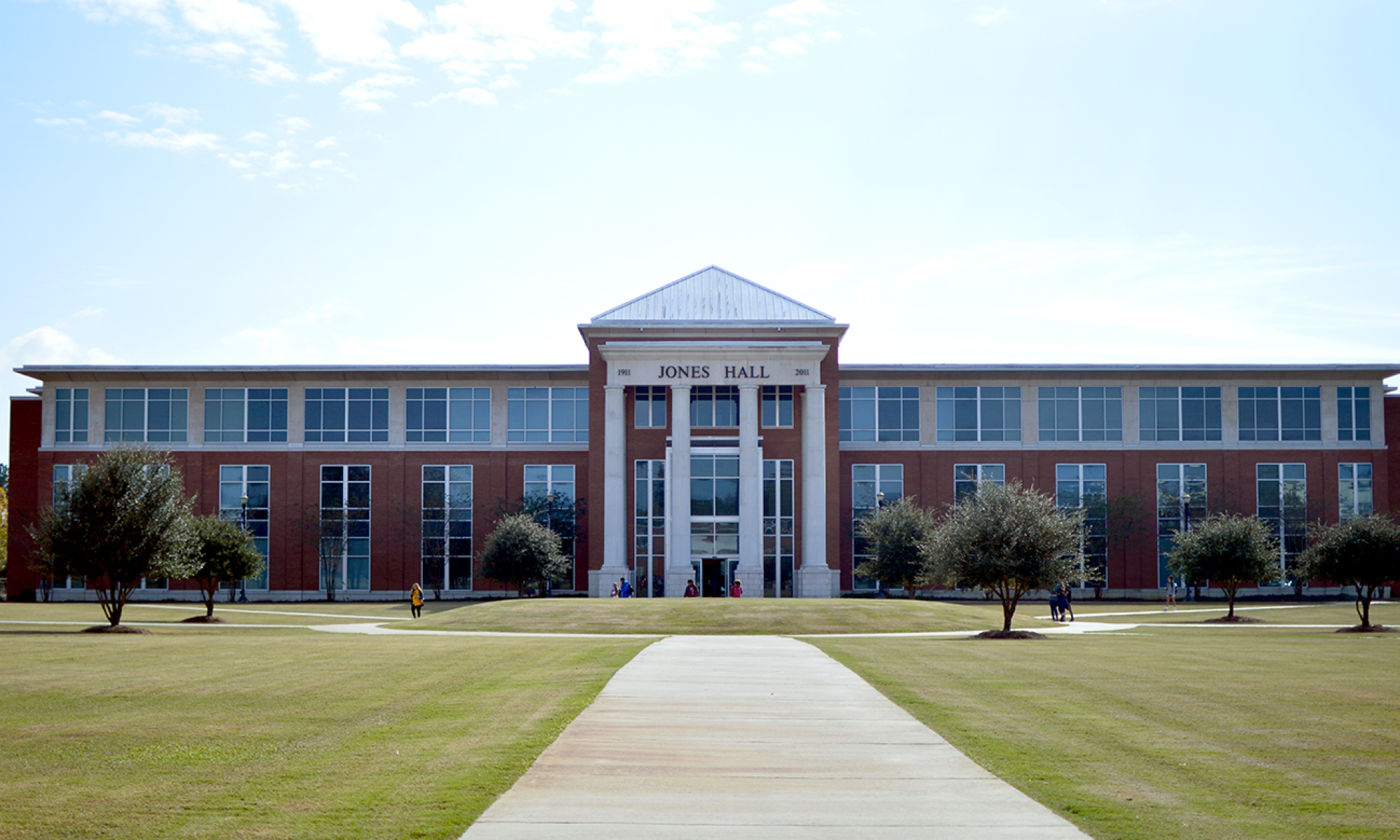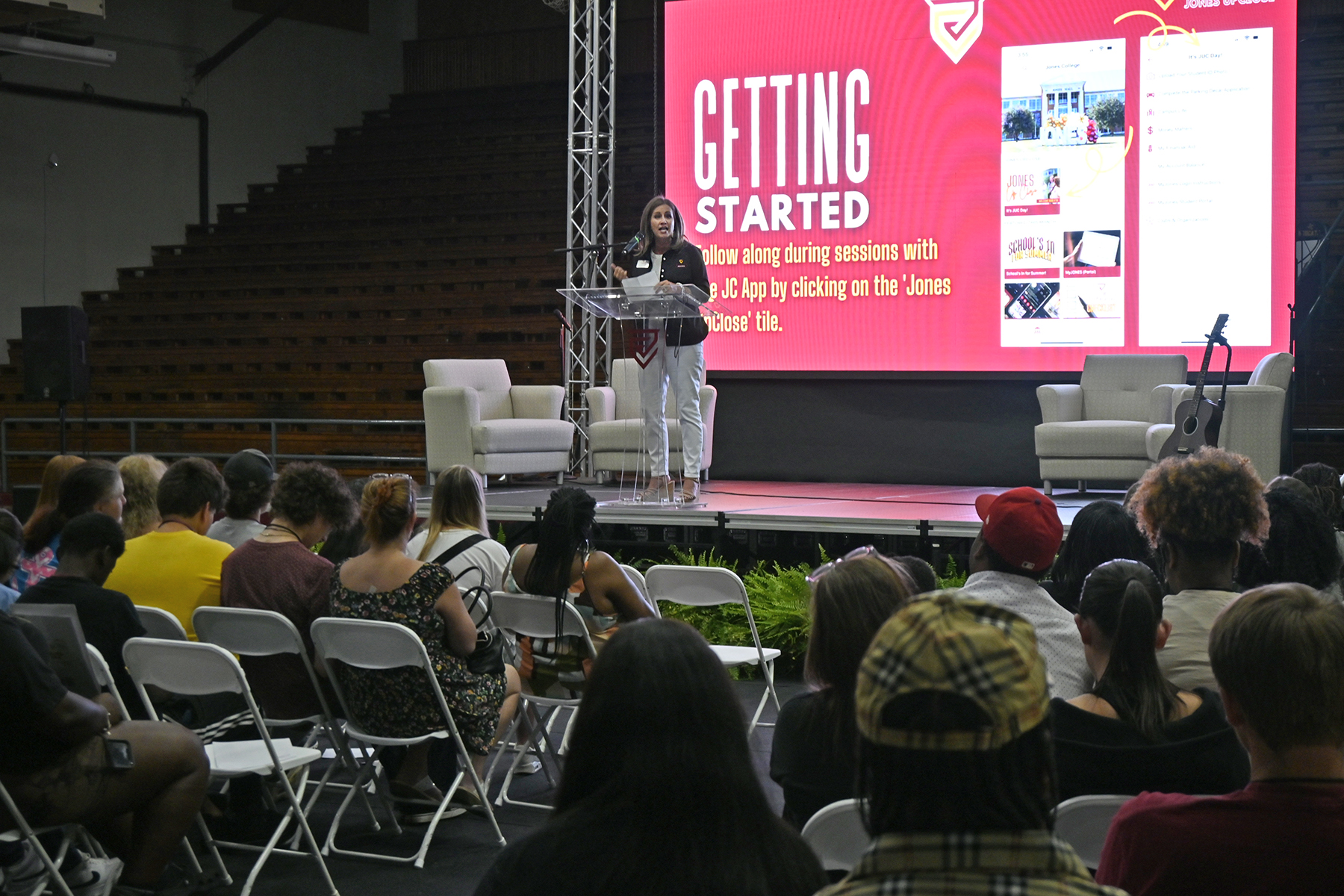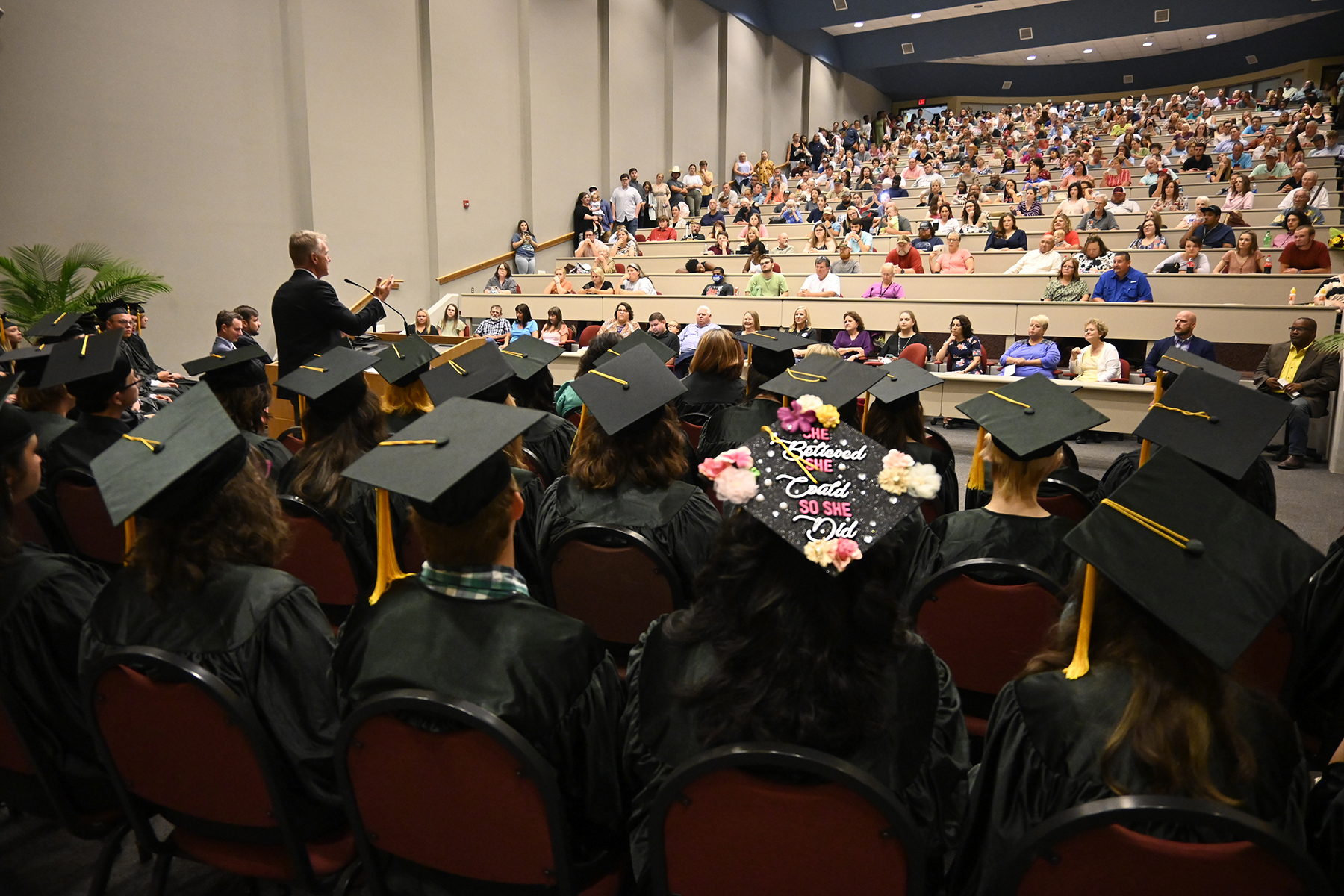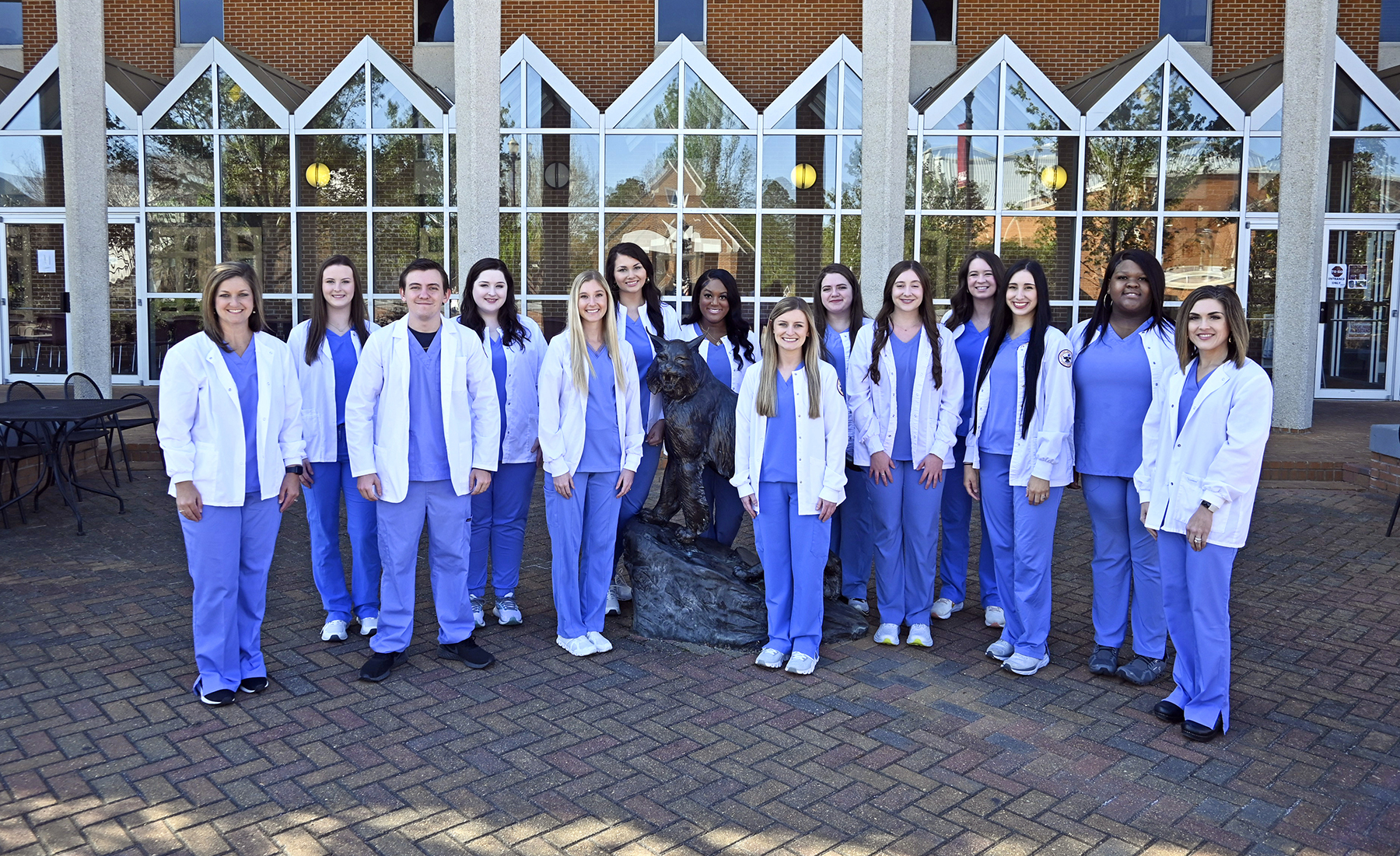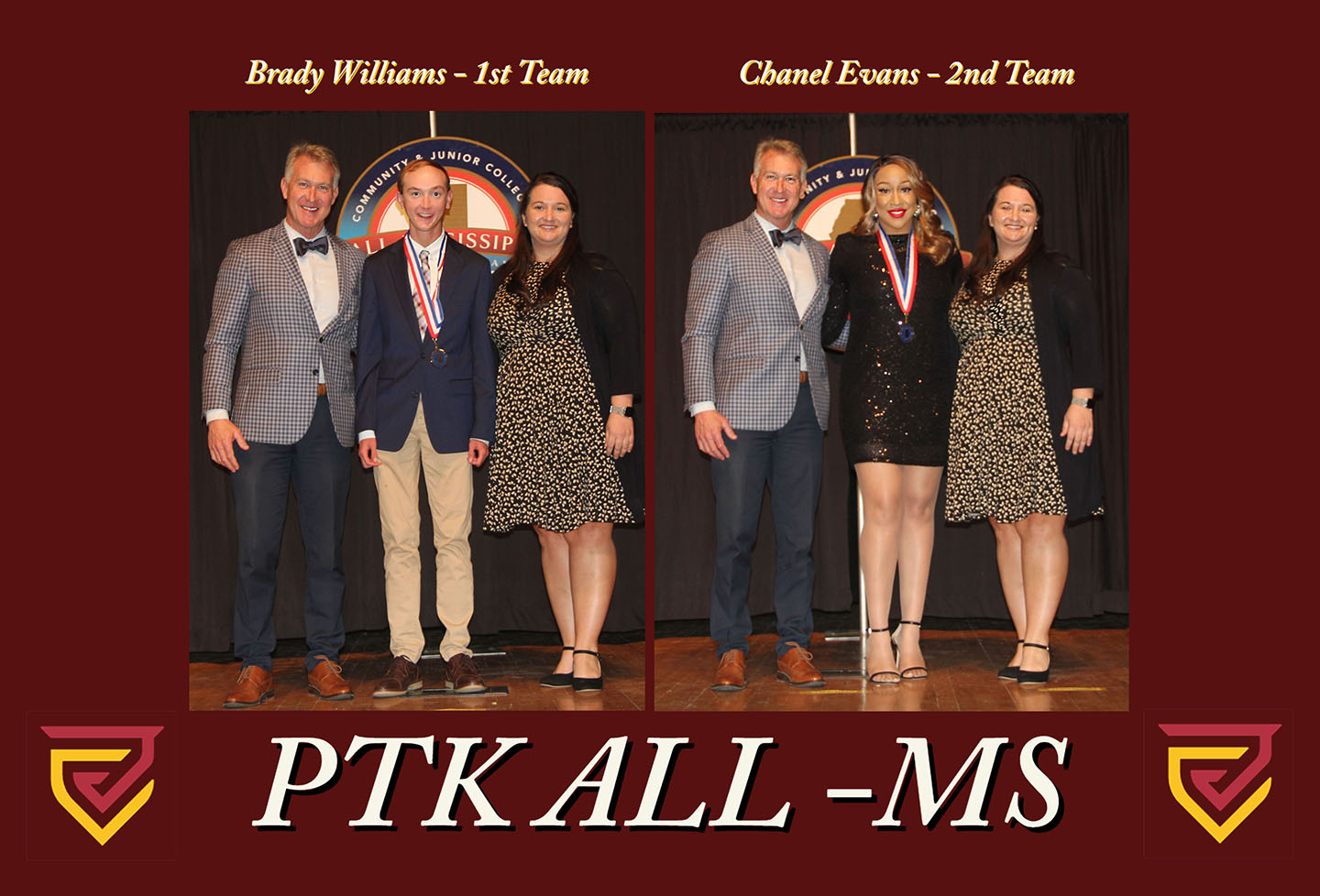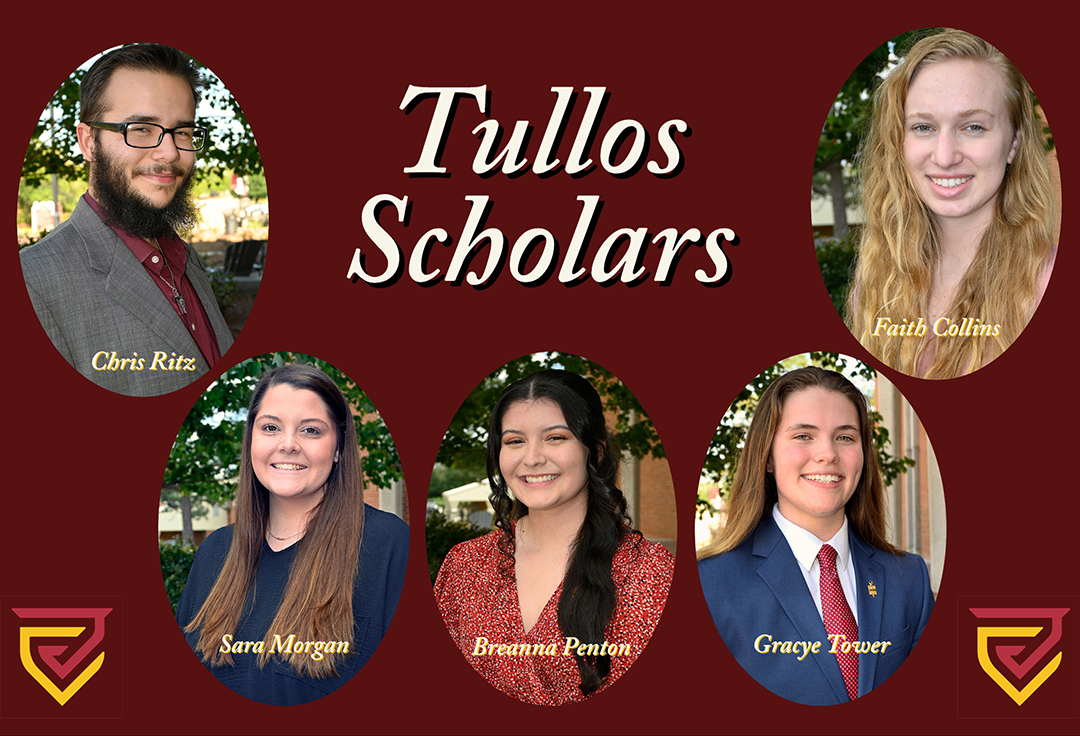Jones Up Close orients new Jones College students
ELLISVILLE – New Jones College students can orient themselves to campus and academic life during Jones Up Close Orientation on Wednesday, July 12. The first session begins at 9 a.m. with a second session that was recently added to begin at 1 p.m. to accommodate the growing number of students registering for fall classes.
“After seeing the number of students signing up for Jones Up Close, we decided to add an afternoon session to better accommodate the nearly 500 students already registered to attend,” explained Sarah Ishee, Jones College Dean of Students. “Students have until Friday, July 7, to sign up for these informational sessions.”
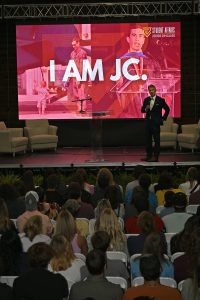
To register for Jones Up Close, check out the website https://www.jcjc.edu/JUC23/ Check-in for the first session is at 8:30 a.m. to attend the 9 a.m. session and check-in is at 1 p.m. for the afternoon session. Both sessions will be held in the A.B. Howard Gymnasium with students attending different sessions on campus for a few hours after the initial overview session. Also on the Jones Up Close website, students will be able to download the JC Mobile App, submit photos for Student ID’s, get a JC Parking Decal and sign up for a Payment Plan.
All new students planning to take classes at Jones College this fall are required to attend Jones Up Close. To “See Yourself at Jones College,” find more information about signing up for classes by browsing this website https://www.jcjc.edu/fall2023/
More Jones College HSE grads earning diplomas since pandemic
ELLISVILLE – The 2023 class of High School Equivalency graduates from Jones College will be recognized at a Graduation Ceremony on Thursday, July 20, 2023, in the A. B. Howard/Bobcat Gymnasium on the main campus in Ellisville, at 7 p.m. More than 120 graduates are expected to participate in the ceremony which is the most since the Covid-19 pandemic. Keynote speaker, Brandi Ratliff, the Mississippi Community College Board’s Professional Development Specialist, hopes to inspire the HSE graduates to continue to thrive and succeed.
“My speech will be on breaking new ground. I want them to consider that what has been torn down (the barriers and walls they had to fight through) was just clearing the land to make space for what they want to build. Receiving their HSE is not just a moment in their life, it is a movement towards everything they hope for in their future,” said Ratliff.

Ratliff, who is a researcher dedicated to finding evidenced-based resources and ideas to support learning, is also committed to exploring ways to counter poverty and increase educational and career training access for socioeconomically disadvantaged youth and adults in Mississippi. The former educator, experienced instructional leader and curricula developer passionately advocates for policies that improve student outcomes.
“Brandi Ratliff is a researcher in the field of education with a focus on policy initiatives that counter poverty and increase educational and career training access for Mississippians. She currently serves as the Specialist for Professional Development for the Mississippi Community College Board, Office of Adult Education. Before joining MCCB she spent nine years serving students in K-12,” shared Wendy Evans, Jones College’s Director of Integrated Pathways.
In addition to earning HSE diplomas, numerous HSE graduates have also earned scholarships which will be awarded during the ceremony from each of Jones College’s eight county districts. Additionally, graduates will be recognized for other academic accomplishments.
Jones College Radiologic Technology graduates earn scholarships
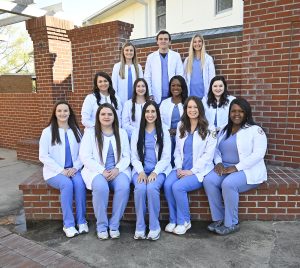
ELLISVILLE – All 12 Jones College Radiologic Technology graduates secured employment prior to graduating earlier this spring, from the six-semester program, according to JC Program Director Mandy Pearson. She credits their excellent performance and dedication to learning and mastering new skills for their success as well as earning scholarships to continue their education.
“This is an outstanding group of graduates, and I am proud of them. I look forward to the many valuable contributions they will make as members of the imaging profession,” said Pearson.
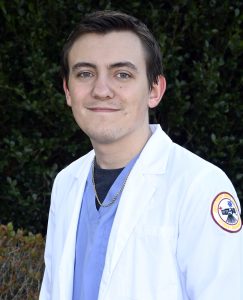
At the program completion/graduation ceremony, three graduates received honors and scholarships. James “Dylan” McLain of Waynesboro was selected by the clinical affiliates to receive the 2023 Clinical Student of the Year. Because of his demonstration of exceptional patient care and going above and beyond his clinical responsibilities, clinical affiliates chose McLain for this top honor.
“Dylan is compassionate, dedicated, hardworking and always advocating for his patients and the profession. He was committed to providing the highest quality of competent care in the clinical setting while undergoing extensive didactic training and working part-time at a rural health care facility. Dylan’s exceptional clinical performance secured him a full-time position at Wayne General Hospital and this award. I know he will continue to maintain the highest standards in the imaging profession and make huge contributions to radiologic technology throughout the community,” said JC Clinical Coordinator, Brittany Barron.
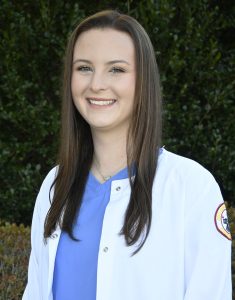
Earning the Academic Student of the Year Award was Abby Boone of Puckett for maintaining a competitive grade point average, in addition to holding a part-time student tech position at one of the college’s clinical facilities. Additionally, Boone was awarded a $200 Mississippi Society of Radiologic Technologist (MSRT) Scholarship.
“Abby is goal-oriented and driven. She has distinguished herself scholastically with competitive grades and has displayed good moral character and professionalism which is why she was chosen for both the MSRT scholarship and the Academic Student of the Year Award,” said Pearson.
Earning the Mississippi Radiological Society Scholarship was Abby Morris. The Columbia resident earned a $400 scholarship to continue her education. Requirements of the MSRS Scholarship include high academic achievement, sound moral character and financial need.
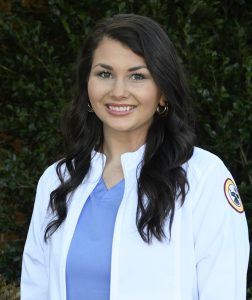
“Besides her radiology coursework, Abby was a member of several student organizations including the Phi Theta Kappa International Honor Society. She was selected to be a member of Jones College’s Academic Hall of Fame, while also maintaining a part-time job as a student tech at an area healthcare facility. Abby has demonstrated her ability as a competent, entry-level technologist and is currently employed full time with Hattiesburg Clinic-Orthopaedics and Sports Medicine. I know she will be an asset to the imaging and healthcare professions,” Pearson said.
Support from both professional organizations, the Mississippi Society of Radiologic Technologist and the Mississippi Radiological Society is appreciated by the Jones College Radiologic Technology program instructors and students. The generous scholarships provided each year assists students in advancing in their education. More information about the Medical Radiologic Technology program at Jones College is available at this website: https://www.jcjc.edu/programs/radiography/
Radiologic Technology Graduates 2023
Marla Beach, Laurel
Karli Blackledge, Newton
Abigail Boone, Puckett
Hannah Brewer, Richton
Kayla Ensign, Laurel
Taylor Martin, Roxie
James Dylan McLain, Waynesboro
Abby Morris, Columbia
Chasity Moses, Magnolia
Lacala Renfrow, New Hebron
Alandria Smith, Waynesboro
Madison, Wicker, Mendenhall
Jones College’s All-Mississippi Academic Team named
ELLISVILLE- Two Jones College students earned individual honors through the International Honor Society for two-year colleges, Phi Theta Kappa. Sophomore marketing and business administration major from Puckett, Brady Williams was selected to Phi Theta Kappa Honor Society’s All-Mississippi Academic First Team. Columbia High School 2003 graduate, Chanel Evans of Hattiesburg and formerly of Magee, was selected for Second Team honors.
“Chanel and Brady are two incredibly deserving honorees for this scholarship competition,” shared Eric Shows, JC Science Division Dean and PTK Advisor. “They genuinely represent the best of what we strive to honor in PTK and in our student body as a whole: scholarship, leadership, service and fellowship.”
At Jones College, Williams has served his peers as the president of both the Student Government Association and Phi Theta Kappa International Honor Society. He also is a manager for the Bobcat Tennis Men’s Team and he is a member of Fellowship of Christian Athletes. This summer, Williams has returned to work at his summer camp job at WinShape Camps through Chick-fil-A in Atlanta, Georgia through the Truett Cathey Organization.

“I am humbled by the honor of representing Jones College as a member of the All-Mississippi First Team and I’m thankful for the opportunities for both leadership and service I have been entrusted with during my years as a student at Jones College,” said Williams. “I’ve grown in so many ways that I didn’t think would be possible coming from a small town without many leadership opportunities. My advisors have encouraged me to set and reach goals that I did not dream were possible. My confidence in my leadership abilities has increased through their support and belief in me. A confident attitude motivates and inspires others. I have had such a positive experience with leading these organizations at Jones, that I hope I can continue to make a difference when I transfer to a university,” said Williams.
One of his goals as a leader in both organizations was to get students more involved in campus life and activities in a post Covid era. Through collaboration with fellow students and faculty members, Williams planned and organized several activities for students to come together to enjoy and meet new people.
“There were discouraging times when we would plan events and very few students would attend, but we would work together and find ways to get more students involved by utilizing different advertising techniques and getting key individuals to attend. We learned from this endeavor that there would be activities that drew more students than others and there were factors beyond our control that would affect involvement. We learned to persevere and not give up just because the activity was not as successful as expected. We learned to be patient and flexible with students who were reluctant to attend activities,” Williams shared. “One measure of our success has been the 5-star chapter rating that our PTK chapter received.”
Earning college degrees 20 years after earning her high school diploma seemed impossible to Chanel Evans. After a personal traumatic experience ended her college career before finishing her freshman year in 2004, she immersed herself in work. As a 16-year-old, Evans began working in the restaurant industry before taking on leadership roles at various restaurant corporations and becoming a personal fitness trainer. In 2021, Evans enrolled in Jones College to honor her younger brother, Rashad Evans who lost his life after having a stroke. He encouraged the then Krystal regional field training manager to return to college.
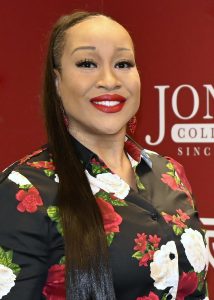
“I walked away from my academia and immersed myself in work and I thought I could just work the pain away and I needed to take time to heal. So, in that time away from school, I did find peace and God made me whole again. So, the greatest challenge thereafter was not the rematriculating but the actual reintegration into campus life and walking amongst my peers once more,” shared Evans. “That’s where PTK comes into play for me and really, Rho Sigma chapter Advisors, Sarah Ishee, Mark Brown and Eric Shows. They received me, a non-traditional student of color, trying to outrun the enigma that has subdued my urge to complete my academic pursuit for so long. They saw me! There wasn’t a barrier. I’m not a victim. I’m a survivor, and I’m more resilient now than ever before!”
Evans earned her Associate of Arts in Psychology in May 2023 at Jones and was honored to be nominated for the Merit Gold Key Award in addition to being named a 2023 USM Golden Scholar, earning a 4.0 GPA and inclusion in the Jones College President’s List Honor Roll and earning the PTK All-Mississippi Academic Award.
“To be awarded such an accolade has to be one of the most tremendous honors of my time. I’ve strived to always give the very best of me. I often hold myself to impossible standards because I’m such a perfectionist,” said Evans. “To also share in this honor with Brady, who is one of the most amazing individuals I’ve ever encountered, and I’ve had the privilege of serving alongside him, not just PTK but also SGA at Jones, is amazing.”
Evans has worked her way up to various leadership roles in the restaurant industry, including her current role as Field Training Manager: Franchise Development at The Wendy’s Company. In this role, she supports the training and operations of 351 restaurant teams from Ohio to Alabama. Evans also facilitates training and leadership classes, develops and certifies training, and disseminates product and educational brand initiatives, all while taking a full course load of online classes at Jones College. Over the past two years, the 38-year-old came to campus for PTK related events or service projects and meetings. Evans is now earning educational degrees as quickly and effectively as she did in the restaurant industry.
“I am a dual degree student earning a psychology and biz management technology degree at Hinds Community College and I have recently completed the Certificate program for Diversity Equity and Inclusion for Human Resources through Cornell University’s School Industrial Relations and Labor School. Also, I will complete my BSBA in Human Resources Management at Southern New Hampshire University by August, then continue my academia at Jones College for the 2023-2024 academic school year as a full-time, General Studies major. I will complete my BSBA at SNHU next fall ahead of my matriculation to Harvard Business School online to study Organizational Leadership.”
Ultimately, Evan’s career goal is to either work in the Diversity Equity & Inclusion field or secure a role as an Executive Leader with the ability to directly influence corporate culture and development. Meanwhile, as she continues to juggle her professional career and earn additional educational degrees, Evans plans to return next fall to Jones College in a leadership role with PTK while earning another degree.
“I have answered the call to serve as a Phi Theta Kappa officer for the 2023-2024 academic year; however, I have not opted for a specific leadership position,” explained Evans. “Nonetheless, I am committed to be of service in any capacity bestowed upon me to the very best of my ability. I am honored to contribute to Phi Theta Kappa, Jones College, and our community!”
The two JC students competed with more than 1,800 nominations from each of the 15-community colleges in Mississippi. As part of the Phi Theta Kappa International Honor Society’s annual academic and workforce competition, each student submitted an essay, answered discussion questions, and described their leadership roles and activities while in college.
The highest scoring nominees from each of the 15 two-year colleges earned First Team All-Mississippi honors and $500 scholarships provided by the Mississippi Association of Community and Junior Colleges. All team members received special medallions, certificates, and printed resolutions from the Mississippi Legislature.
Five Jones College students named Tullos Scholars
ELLISVILLE – Five Jones College sophomores were selected as Tullos Scholars which is the highest honor bestowed upon students: Faith Collins of Heidelberg; Sara Grace Morgan of Foxworth; Breanna Penton of Runnelstown; Christopher Ritz of Sumrall and Gracye Tower of Runnelstown. All five students were nominated by faculty members as they distinguished themselves and impressed selection committee members over the past two years.

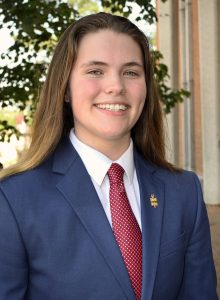
Perry Central High School graduate, Gracye Tower majored in electrical engineering and was selected to be a member of the Bobcat Brigade, Charles Pickering Honors Institute and to serve as College Project Director for the Phi Theta Kappa international honor society, Rho Sigma chapter. Additionally, she was a member of the Student Engineering Society and a band manager for the Maroon Typhoon Marching Band. Tower will continue her education at Mississippi State University. She credits her grandparents, Dr. Mike and Lucy Edmonds for pushing her to do her best at all times, along with the support of her brother Brody, and parents, John Tower and Kristyn Edmonds for being successful.
“This honor means so very much to be recognized for all my hard work as a student at Jones. It can be pretty difficult to balance school and time-consuming extracurricular activities, especially with the intensive classes that come with pursuing an engineering degree,” shared Tower. “I was blessed to have some of the most wonderful teachers like Mary Boleware, Dr. Corey Jones and Sarah Ishee to name just a few that helped me persevere and become the best student I could possibly be along the way. I am extremely thankful to have received this honor from Jones College and I am so thankful that I chose to be a Bobcat!”
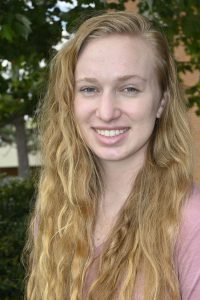
Faith Collins majored in Computer Science earning President’s List Honors each semester at Jones College. She is a member of PTK, Sigma Kappa Delta Honor Society, Student Government Association, Student Engineering Society and FBLA. Collins is her church’s pianist and has volunteered on various disaster relief efforts. Her future plans include earning a software degree with minors in mathematics and German.
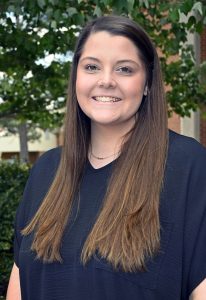
West Marion High School graduate, Sara Morgan plans to continue her education at William Carey University and become a physical therapist. At Jones College, Morgan was the Vice President of Fellowship for PTK and assisted with the College Project and Honors in Action Projects, and she was a member of the Charles Pickering Honors institute. Morgan is currently in Washington as a Summer Missionary through the Baptist Student Union, where she also serves on the BSU State Lead team as well as President. Sara’s parents are Brad and Jill Morgan.
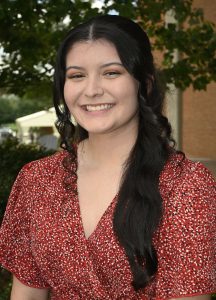
Perry Central High School 2021 Salutatorian, Breanna Penton worked hard at Jones College, earning a spot each semester on the President’s List Honor Roll, and she was a member of the Bobcat Brigade and the Charles Pickering Honors Institute. As the Vice President of Phi Theta Kappa International Honor Society, she organized numerous events and volunteered for many PTK sponsored activities while also working at Chick-fil-A in Petal. Her goal is to continue her education at USM to earn her elementary education degree. Breanna’s parents are Windell and Jennifer Penton.
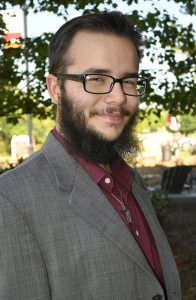
Christopher Ritz majored in electrical engineering and served as the President of the Jones College Student Engineering Society. He’s been on the President’s List Honor Roll and is a member of PTK and the Charles Pickering Honors Institute. Ritz has been volunteering as a tutor, and he is the local coordinator for Students for Liberty, in addition to being an evangelist. Floyd and Tracy Ritz are his parents.
Requirements for the Tullos Scholarship include being a full-time sophomore, submitting a résumé with two-faculty recommendation letters, having outstanding academic achievements, being engaged in college activities, leadership positions and participating in community service. Each student received medallions and $1,000 scholarships in recognition of being named after the scholarship donors, Gene and Nada Tullos.
Gene Tullos came to Jones in 1960 on a basketball scholarship which he said, gave him a jumpstart and a great foundation to begin Law School. Endowing scholarships, like the Tullos Scholarship Program was his way of returning the “favor” to the college that provided an excellent foundation for a successful career as an attorney in Smith County.
“As he made the single, largest donation ever at Jones, Gene Tullos said he wanted to recognize outstanding students from various majors who are shining stars, to honor them and encourage them to feel special,” said Jones College President, Dr. Jesse Smith. “When Gene established this Scholarship, he explained, because of the encouragement he received at Jones he felt like he could make it and be successful. In fact, Gene was a successful attorney for 50 years, only missing three days of work related to his cancer treatment before he passed away in 2016.”
For more information about Jones College, visit the webpage, https://www.jcjc.edu/
